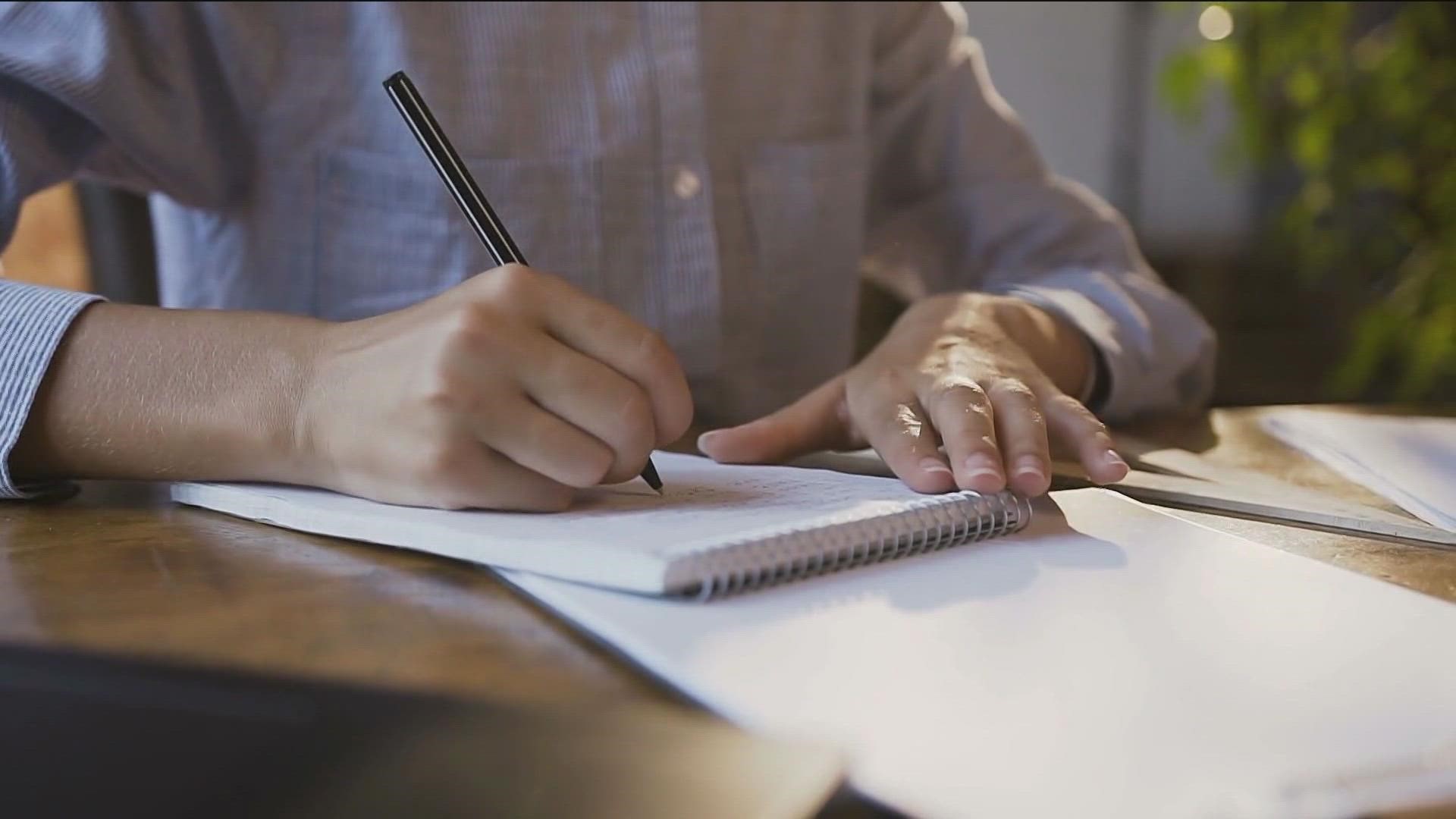IDAHO, USA — Crossing T’s and dotting I’s may just be what a forensic documentation expert needs to determine if someone’s handwriting is a fraud.
Harassment letters, forged wills, receipts and threatening notes are all just some of the things that Brett Bishop, a forensic document expert, analyzes on his day-to-day.
Bishop is based out of Spokane with his company, Bishop Document Examination Services – and he is about to turn Idaho into a hub for document training. Idaho State Police Forensic Services is contracting with Bishop to train scientists in Idaho how to examine and analyze documents. Washington State Patrol will also be loaning Idaho State Police (ISP) some equipment they are not using for analysis.
ISP Forensic Director Matthew Gamette said that Bishop has done a great job of writing up technical manuals for the scientists to use during document analysis training.
“We want to be able to do anything an investigator might need to solve a case. We want to add that analysis to the tools we have to be able to solve cases,” Gamette said. This tool gives Idaho the ability to do analysis they were never able to do before within the state, turning into a premier lab that other states could go to for help.
Gamette said common cases he believes exist in Idaho have to do with people forging lottery tickets or some kind of receipts for money -- that is where Bishop steps in.
Bishop said that he often sees many cases of fraud and forgery. The most "wild" ones he investigates are usually cases where someone has forged a signature of a will to get their family member’s money after death.
“You'll see anything from a simple credit card receipt somebody forged, to fraud cases, where maybe an employee embezzles large amounts of money, and it's been going on for many, many years… to a will, where the question is whether or not the decedent actually signed it,” Bishop said.
How does it work? Bishop will gather handwriting samples from subjects to exclude them or compare them to match up samples in instances of a crime, he said.
Bishop identifies certain characteristics when it comes to signatures and analyzing handwriting – pieces of handwriting like line quality, pressure, the height of the letters, stroke type, direction and speed. If someone's stroke and pressure is consistent in their writing, and it is compared to a signature or note that has the opposite, it is a red flag. Most do not stray from their style, Bishop said.
People try to overcome their handwriting habits – but they are always there, he said.
“I'm not going to be able to execute the signature at the same speed, I'm not necessarily going to be able to maintain the same height relationships and proportions, I may stop the pen, and that can be a giveaway. And there, you'll see these hesitations, you'll see the ink bleed, you'll see changes of pressure, so you can pick up all these different characteristics,” Bishop said.
He said there are three types of signatures – a formal signature, a common signature, and a careless signature.
A formal signature would be one someone uses to sign an official government document, Bishop said. A common signature would be one that someone uses to sign a job application, he said, and a careless signature would be one that people use to sign their names on an iPad during a coffee-shop transaction. Bishop would ask an investigator to get a wide range of samples of the three varieties to compare and contrast.
Not only does handwriting come into play, but so does the ink of a pen, of a printer and even the stationary that something is printed or written on.
Tracing back the purchases of a printer, of stationary or even finding the pen to match a handwritten note may be part of the investigation -- and the more complicated the sample is, the easier it may be to determine what is fake and what is real.
“The more the more detail that you have in your signature, the harder it is going to be for somebody to duplicate,” he said.
Gamette said once Idaho is trained up, it will be one of the few states in the country that can offer this certain type of examination rather than going through a contractor.
"We want to be a full-service laboratory system," Gamette said. "We are constantly asking (police) what they need to solve their cases."
Join 'The 208' conversation:
- Text us at (208) 321-5614
- E-mail us at the208@ktvb.com
- Join our The 208 Facebook group: https://www.facebook.com/groups/the208KTVB/
- Follow us on Twitter: @the208KTVB or tweet #the208 and #SoIdaho
- Follow us on Instagram: @the208KTVB
- Bookmark our landing page: /the-208
- Still reading this list? We're on YouTube, too

